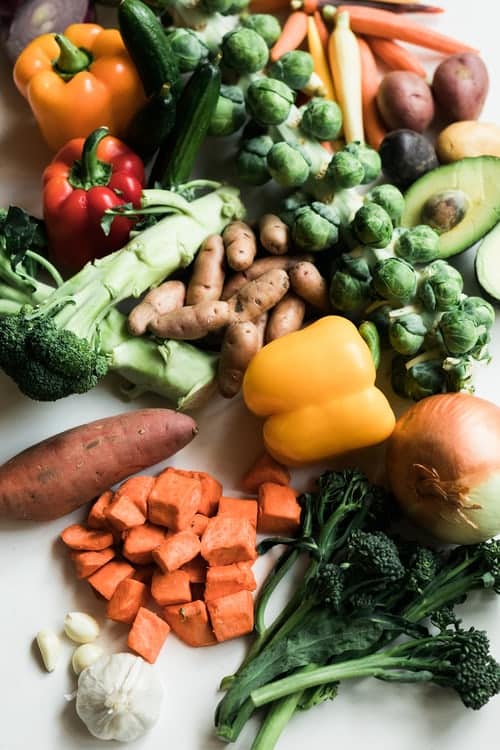
When people think of increasing the veggies in their diet they picture adding more raw vegetables to their salad or smoothie and often ignore cooked ones. Most people feel that cooked vegetables just aren’t as healthy. Is that true? There are a lot of misconceptions about eating healthy but in this case, the answer is both true and false. Cooking may enhance the nutrients you absorb, destroy the nutrients, or make no difference at all. It also depends on the nutrients and vegetables.
Vitamin C is hard to protect.
When you cook vegetables containing vitamin C, like tomatoes, broccoli, and sweet peppers, it destroys it. Vitamin C is water-soluble, so the vitamin C leaks into the water when boiled. Cooking food in a cast iron pan or exposure to oxygen destroys it. If you cut the fruit or vegetables ahead of time cover them tightly and store them in the refrigerator. Steaming food, stir-frying it, or serving it in a casserole can help preserve some of the vitamin C in the vegetables.
Cooking may increase the content of some vitamins.
Even though cooking tomatoes destroys nutrients, most notably vitamin C, it also enhances others. Lycopene, the phytonutrient that gives tomatoes its red color, is one of those nutrients. Lycopene is an antioxidant that protects the body from aging, disease, and death at a cellular level. It offers heart-healthy benefits, can slow skin aging, and promotes eye and brain health. Lycopene supports strong bones, reduces the risk of cancer, and can reduce pain. It is similar to ibuprofen for pain reduction. While you lose the vitamin C in tomatoes, you gain a different potent antioxidant.
Even though the vegetables may contain nutrients, does your body absorb them?
No matter how many nutrients you eat, you won’t get any benefit if you don’t absorb the nutrients. Studies show that cooking vegetables may make nutrients more easily absorbed. One study followed three groups of women. The first group was a control group that ate an average diet. The second group ate a raw food diet, and the third group ate both cooked and raw vegetables based on dietary recommendations. The group eating the raw food consumed more nutrients, but the group eating both cooked and raw vegetables absorbed more nutrients. Cooking made the nutrients more bioavailable.
- Some vegetables are better when cooked. Eating raw sweet corn, eggplant, asparagus, or potatoes isn’t as pleasant as eating them cooked, so you eat more.
- Heating not only helps release lycopene, but it also helps release the nutrients in carrots. They’re healthier when they’re heated. Cooking destroys the oxalate in spinach. Oxalate binds to calcium and makes it unavailable.
- You can eat crucifers like Brussels sprouts or broccoli, cooked and raw. However, the raw version can give you gas or digestive issues if you introduce it too fast into your diet.
- Experiment with ways to increase the variety of vegetables in your diet. If you’ve never included Brussels sprouts in a salad, try it or add leftover roasted vegetables. Include vegetables at breakfast by adding them to scrambled eggs.
For more information, contact us today at Body Sculptors Personal Training
